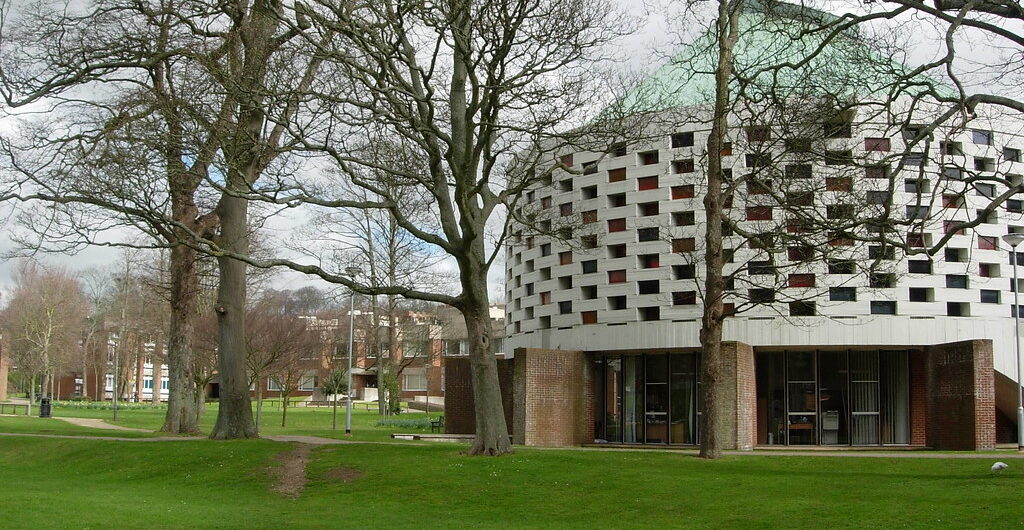Words by Stevie Elkington
The University of Sussex is participating in the Government’s mass asymptomatic testing programme and they will offer tests from November 30 until December 11.
Sussex will end face-to-face teaching between the 3-9 December across the different schools in the University, allowing students the time to get tested and return home during the travel window. The tests will be run out of the Sports Centre on campus.
The government has released an evacuation-style plan for end of term travel, aiming to control the potential spread of COVID-19 from UK university students returning home. Mass testing programmes are being rolled out across UK universities, with tests being made widely available to all students. Students who test negative are advised to travel home during a week-long ‘travel window’ between December 3rd and 9th.
Sussex Student Communications informed students in a mass email that they will ‘need to take two tests over a four-day period… once you have received negative results, you are asked to travel as soon as possible’. Student Communications indicated the importance of both tests, stating that it will help students ‘be as certain as possible that you do not have the virus and so can safely re-join your families’. The testing will be done on the University campus, with results being processed and made available within 30-45 minutes.
Sussex students are being offered lateral-flow tests, which the email reported are ‘rapid turnaround tests that can process Covid-19 samples on site, without the need for laboratory equipment’ – with results generated in under half an hour. Students with two negative test results are instructed to leave campus as soon as they can and are advised to travel by car or arrange to be picked up at campus if possible. If a student receives a positive result, they must self-isolate for ten days following the government guidelines with support from the University.
Third year Geography student Erin Jones said that she will be taking advantage of the testing scheme; ‘I want to take all the steps I can to ensure I am not putting my family or my local community at home at additional risk. If mass testing is utilised by the majority of students, it could really help to limit the spread of the virus across the country, as long as the guidance is followed.’
Some students have raised concerns over the accessibility of the testing site. Zoology Masters student Emma Ingram said that she felt that students off campus may find it more difficult to access the tests; ‘students off campus may have to use public transport which will defeat the point of being tested, as they will not be able to isolate immediately following the Covid-19 test. It would have been a good idea to have a testing site in Brighton for students living in town.’
The concerns of University of Sussex staff were raised in the national media, with a Guardian article detailing that ‘University staff have voiced concern after their employers asked them to join a hastily assembled army of workers who will carry out mass Covid-19 testing of students before the pre-Christmas exodus home’. Vice-chancellor Adam Tickell sent an email to staff on the 18th November, stating that only with the help of the University staff could the mass testing programme succeed. Tickell informed staff that ‘The mass testing programme will entail very significant challenges in an extremely short time period, and we are planning the logistics now so that we are as prepared as possible’. It is understood that over 100 members of staff have volunteered to help in the testing effort.
The concerns of staff have ranged from whether PPE would be widely available to whether they would be held responsible for false negative tests, resulting in students infecting their families once they return home. With job cuts rife across university campuses, Vicky Blake, the president of the UCU, said ‘Junior and newer staff felt pressured to take part… it speaks to holes in the planning around student return that we have been warning about’. However, a spokesperson for the University reported that staff had been informed that the voluntary testing duties would be ‘instead of, not on top of, their usual duties’ with full PPE provided and their usual pay being received.
Fourth year history student Elissa Stoddart said that she felt that asking for lecturers to volunteer to test students was insulting; ‘lecturers are there to teach, not to test. That is completely out of their job description. The University should be protecting their staff, not putting them at risk in a situation they have not been trained for’. In response to asking if she thinks the testing will help minimise the spread of the virus, she commented that ‘I think the testing will be beneficial in terms of not spreading the virus during travel home, but people will mix with friends and return to areas that have higher virus rates than Brighton, so there could be a spike in January’.
The government has created the mass testing scheme in response to the high levels of coronavirus cases which arose in major university towns across the UK. With an estimated 40,000 students having been infected with the virus, concerns were raised about asymptotic students spreading the virus further upon their return home. The student age group is less likely to display symptoms, as the virus affects the younger generation less severely.
The Universities Minister Michelle Donelan, interviewed on BBC Breakfast, indicated that the ‘travel window’ was calculated to allow any students that developed any coronavirus symptoms up until the last day of the programme to complete their self-isolation before Christmas. Any students which test positive between will be required to undergo the isolation period, without the risk of missing the winter festivities. Michelle Donelan commented that “students will pose a much-reduced risk to their loved ones and their community” if they return home during this period, once they test negative.
The government’s plan asks students to travel when infections will be at a lower point, due to the five-week national lockdown that is currently in place in England. Despite this, the general secretary of the University and College Union (UCU), Dr Jo Grady, said that only giving one week for almost a million students to travel across England ‘leaves little room for error’.
The National Union of Students had warned the government of the health risks posed by allowing students back into universities, urging the government to move all courses online to temper the spread of the virus. Despite the critique from the NUS, the government defended their decision to allow face-to face teaching at universities. Despite their differing opinion in teaching approach, the NUS have vocalised their support for the voluntary testing plan and encouraged all students to take advantage of the scheme – ‘we really do think students will be seeking to take these tests and to do this safely’, said NUS President, Larissa Kennedy.
The government’s plan for students to return in January has not yet been released. Unlike the start of Autumn term, the concentration of students departing their homes after the winter vacation period will be far more concentrated, so it is expected the government will lay out guidance for the return of the student population.
Picture credit: Laura Billings





